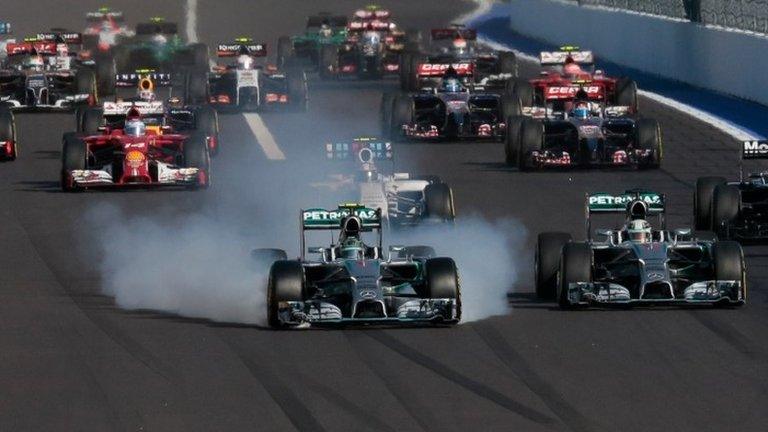Mercedes' title came from Lewis Hamilton but began in engine room
- Published
- comments
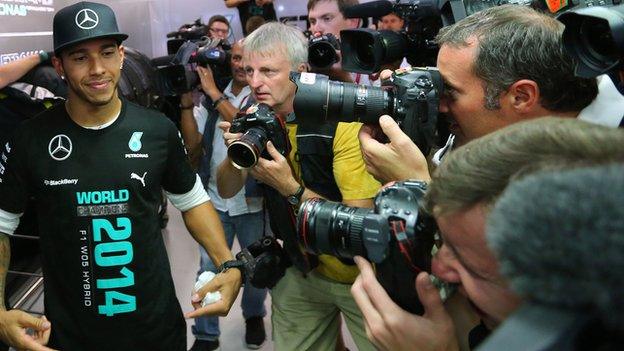
Hamilton spoke in glowing terms of his employers as the Mercedes constructors' title celebrations began
The shine was unavoidably taken off it because of the circumstances of the Russian Grand Prix in the aftermath of Jules Bianchi's awful accident in Japan, but Lewis Hamilton's ninth win of the season, and the constructors' championship that it secured, marks a magnificent achievement by Mercedes.
There was an inevitability about this title, almost from the moment Mercedes' 2014 car took to the track in pre-season testing.
The team grasped the challenge of the biggest change in Formula 1 technical regulations in a generation better than anyone else, and produced a car that will go down in history as an all-time classic.
As Mercedes F1 boss Toto Wolff was quick to acknowledge after the race, the reasons for that go back at least three years.
Then under the leadership of Ross Brawn, who left Mercedes at the end of last season, the team understood that the new turbo hybrid engines and the accompanying fuel-flow formula required a completely different approach to F1.
It was no longer only about honing the aerodynamics, in increasingly esoteric ways, in a formula in which every engine was pretty much the same, which was the key to Red Bull's four consecutive titles from 2010 to 2014.
Instead, the engine would now be a key performance differentiator, and the whole car had to be conceived together in a fashion more integrated than ever before.
Some clear thinking about the ramifications of that led to a technological breakthrough on the engine.
That not only produced a power unit that had more performance and better fuel consumption than those from rivals Renault and Ferrari, who had not thought of the concept, but also created key advantages to do with weight distribution and packaging that made the car faster as well.
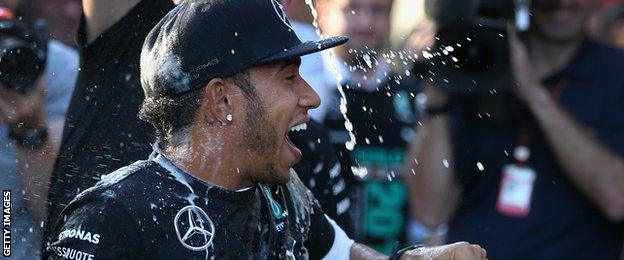
Hamilton and Rosberg have taken Mercedes to 13 wins in 16 races this season
As Wolff put it after the race: "We have an advantage but it is not only on the power unit side, it is also on the chassis side, I believe."
Establishing these key ingredients meant making some bold decisions - Mercedes had already embarked on the 2014 car design when this breakthrough was discovered. Realising its potential, they scrapped the work they had already done and started again.
Brawn's changes to the engineering group were supplemented at the start of 2013 when Wolff joined as head of Mercedes motorsport and brought with him the former technical director of McLaren, Paddy Lowe, as executive director (technical) of Mercedes - effectively co-team boss.
The two-pronged management team has built on Brawn's foundations, and taken them to the next level. The result has been domination of a kind rarely seen in F1.
"It's incredible," Wolff said. "We have to pinch ourselves sometimes. We are part of the Mercedes-Benz history. We won the first constructors' title for Mercedes-Benz ever and that feels just weird.
"I just feel proud and honoured to be part of a team the foundations of which were built by Ross, who played such an important role.
"The steps that were done in 2012; the people who joined us in 2012. We constantly ramped our game up, we made the right decisions, we got the right resources, the big boys understood what we needed, we were on an upward slope and today is the result of all that."
Wolff was cautious when it was pointed out to him after the race that, historically, such domination tends to continue for some time in F1.
"Somebody said yesterday's home runs do not win tomorrow's games and that is the truth," he said. "You cannot rely on history and say that is how it has always been and I don't believe that.
"We have all it needs, great people and all the right resources, two great drivers and these are the ingredients to be there on the top. We have to be realistic about what we can expect from the next years but of course it is our target to continue in this way."
Mercedes' domination has done more than end Red Bull's reign in F1; it has led to a massive shake-up throughout F1.
Fernando Alonso's frustration at Ferrari's inability to give him a competitive car has led him to quit the team, his future uncertain.
His place at Maranello next year will be taken by Sebastian Vettel, who has decided to leave Red Bull after being beaten by Daniel Ricciardo this year. Vettel, in turn, will be replaced by another rising star, Russian Daniil Kvyat.
Meanwhile, Mercedes' rivals are playing politics behind the scenes, trying to loosen the restrictions on engine development in F1's rules, in the hope that will allow them to catch up.
At the other end of the grid, these sorts of concerns are a luxury.
While Mercedes were celebrating their victory, albeit in appropriately muted fashion, Marussia president Graeme Lowdon, looking drained but still holding himself together, was holding an impromptu news conference with a small number of British journalists.
"My job is the easy job," said Lowden, who had earlier told the BBC that the team wanted to support Bianchi "in any way they could", when asked how he got through such a harrowing week following Bianchi's horrific accident.
"We've got 70-odd people down there, some of them are very young guys, and their job is incredibly difficult under normal circumstances. It's arduous work.
"People think F1 is all rock and roll. And it's not, it's really hard work and it's my job to try to give those guys everything they need to be able to do that, to give them the framework in which they can operate. They are a world-class bunch of people.

Mercedes co-team boss Paddy Lowe received the constructors' trophy from Russian President Vladimir Putin
"I can't come along here and say: 'OK, guys, today we have to stick together and work harder'. They do that anyway. What they want to see is that we are carrying out things as a team in a way that engenders their respect. And if people respect the organisation they work for then everything else follows."
By dealing with such terrible circumstances with such quiet dignity and resolve, Lowdon and his Marussia team have certainly earned that respect, of everyone in the paddock, and doubtless many thousands beyond.
- Published12 October 2014
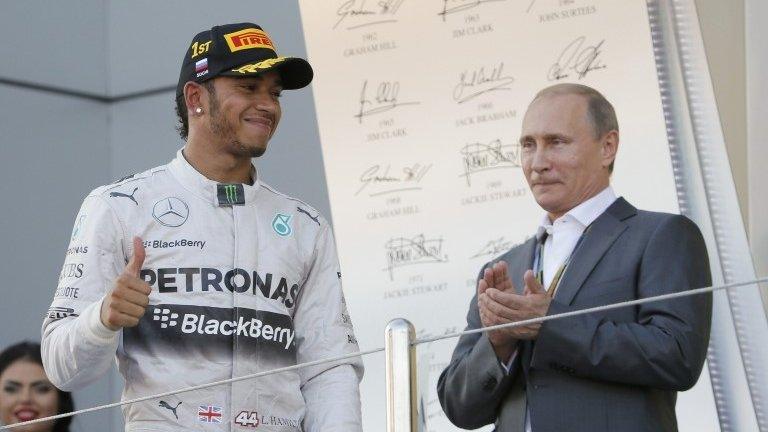
- Published12 October 2014
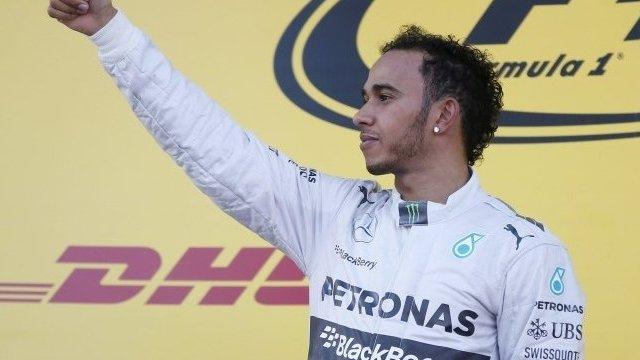
- Published10 October 2014
